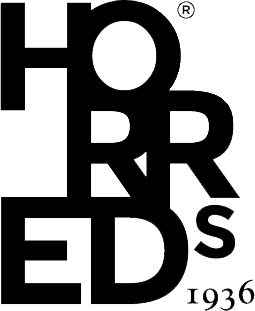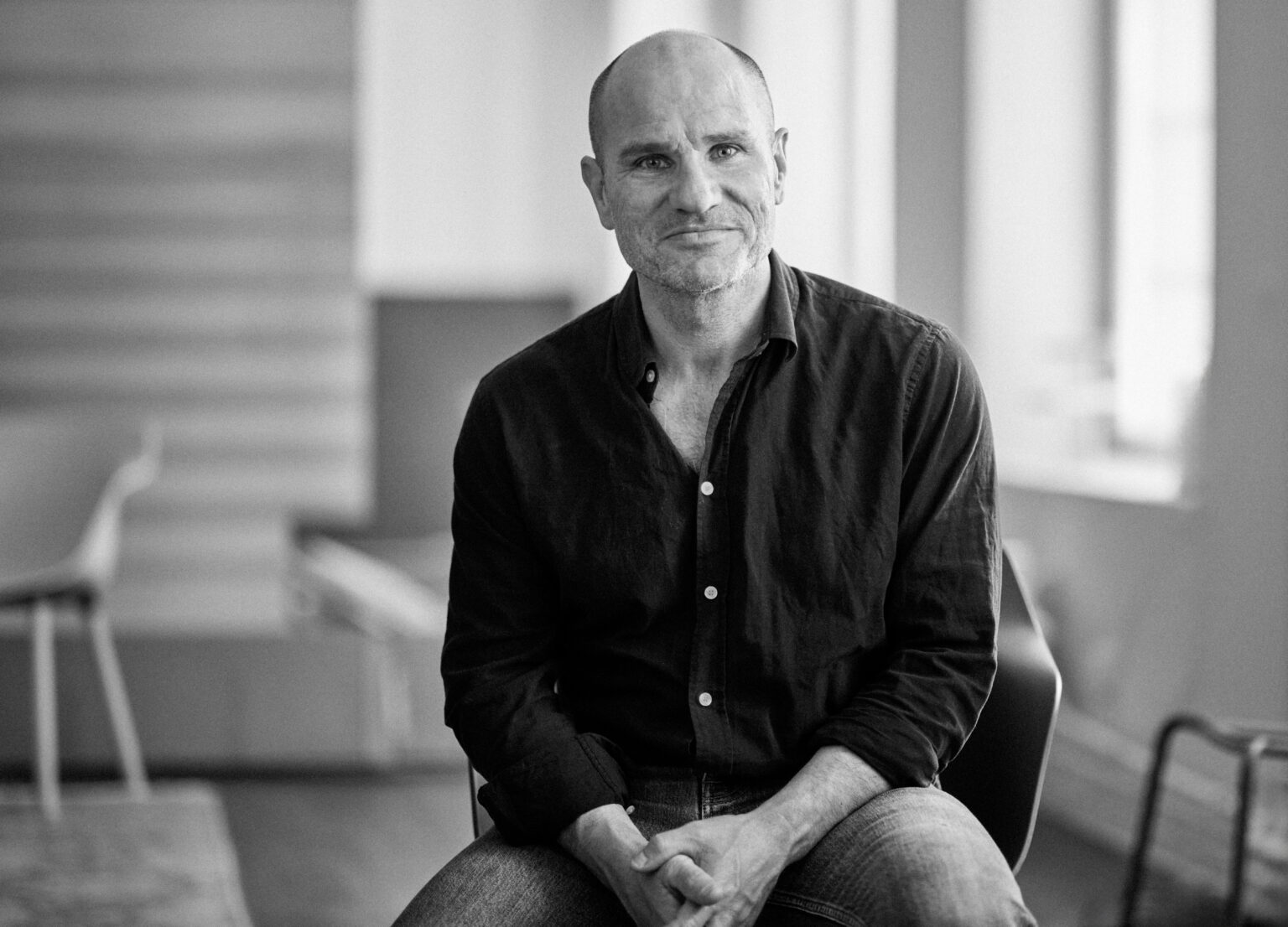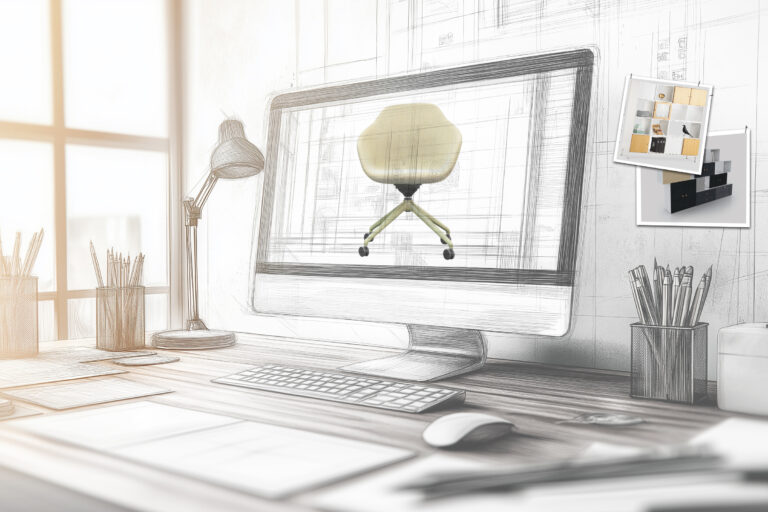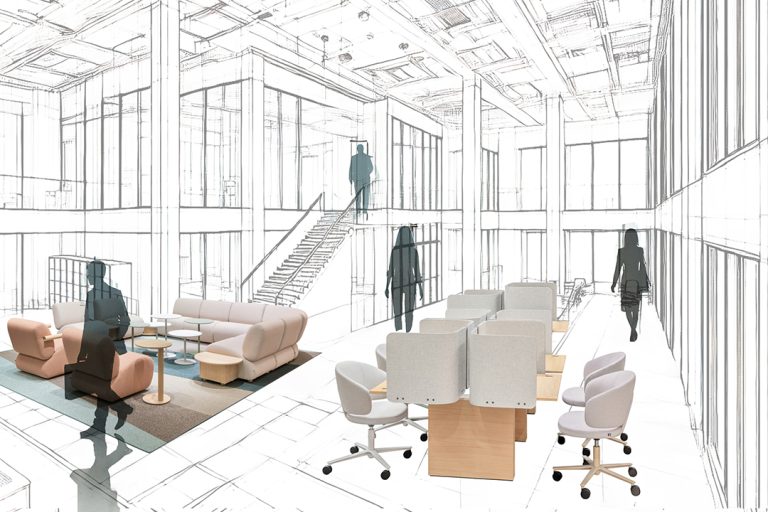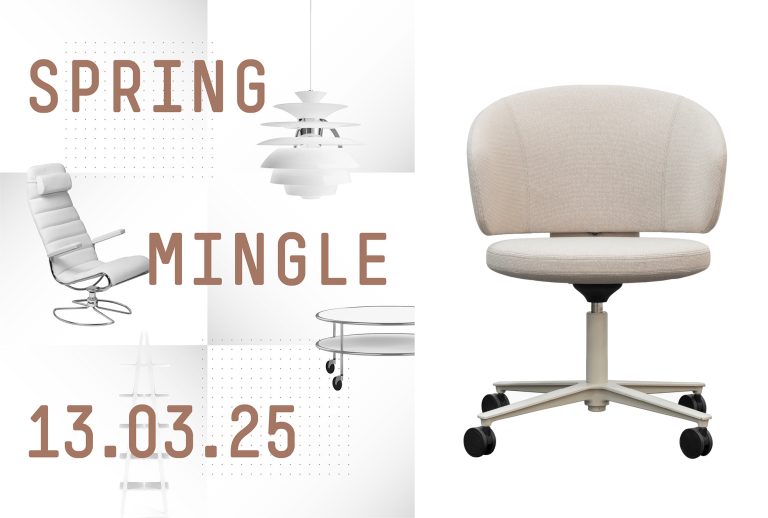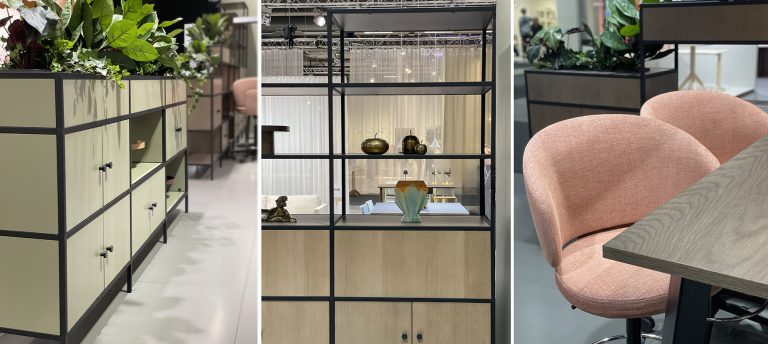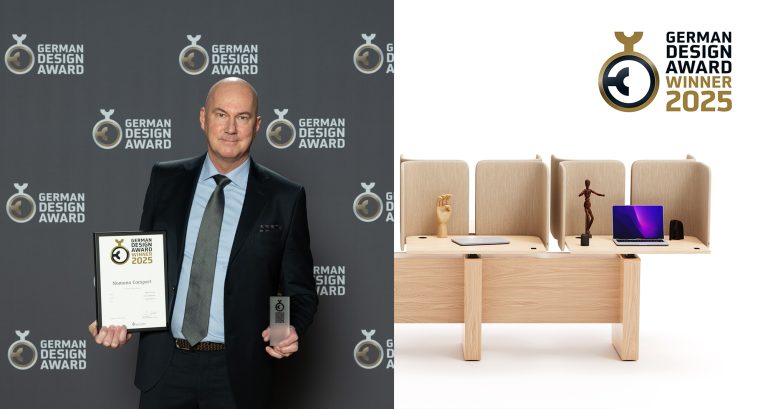Fredrik Mattson
Horreds and furniture designer Fredrik Mattson have enjoyed a long and successful partnership, creating sustainable and innovative furniture solutions together. This work is now crowned with yet another prestigious recognition – the German Design Award 2025 for the Nomono Compact work desk. Explore the thoughts and process behind this award-winning design.
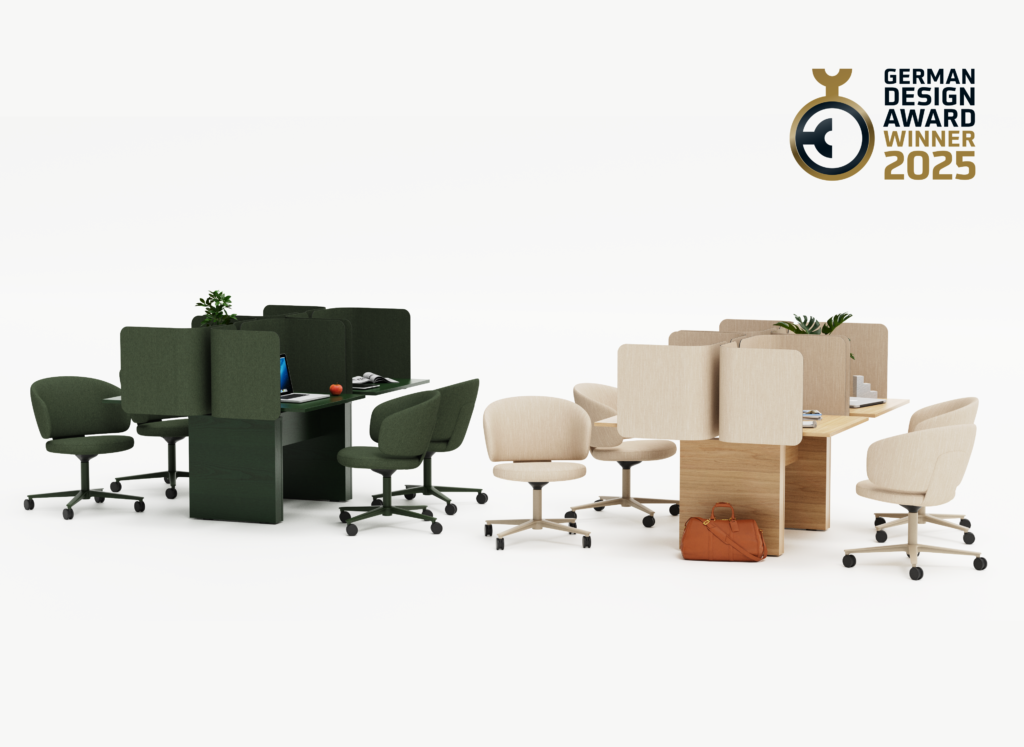
Nomono Compact has now won the German Design Award 2025. What was your original vision when designing the product, and how does it feel to see it receive this kind of recognition?
“I’m very pleased with the final result. We haven’t compromised on anything; the entire system is meticulously thought through down to the smallest detail. The German Design Award 2025 confirms the sense we had at launch – this is a strong series with real demand!”
You have a background as a cabinetmaker and interior architect. How does this influence your design process?
“I have a deep understanding of the process and can discuss manufacturing details with the producer in a more detailed way. I can follow the product all the way through instead of just delivering a drawing for someone else to manufacture.”
Your studio emphasizes a long-term approach with no shortcuts, similar to long-distance running. How is this philosophy reflected in the design of Nomono Compact?
“It’s about keeping the core idea alive. To guide the concept of the furniture all the way to the finished product while retaining the initial spark when reaching the goal. It takes perseverance and a willingness to test and refine without cutting corners or taking shortcuts. And this applies not only to the designer but also to the producer. In working with Nomono Compact, I collaborated with Horreds’ product developer Markus Torstensson, who is incredibly skilled. He shares my interest in details and often brings solutions we hadn’t considered in the studio.”
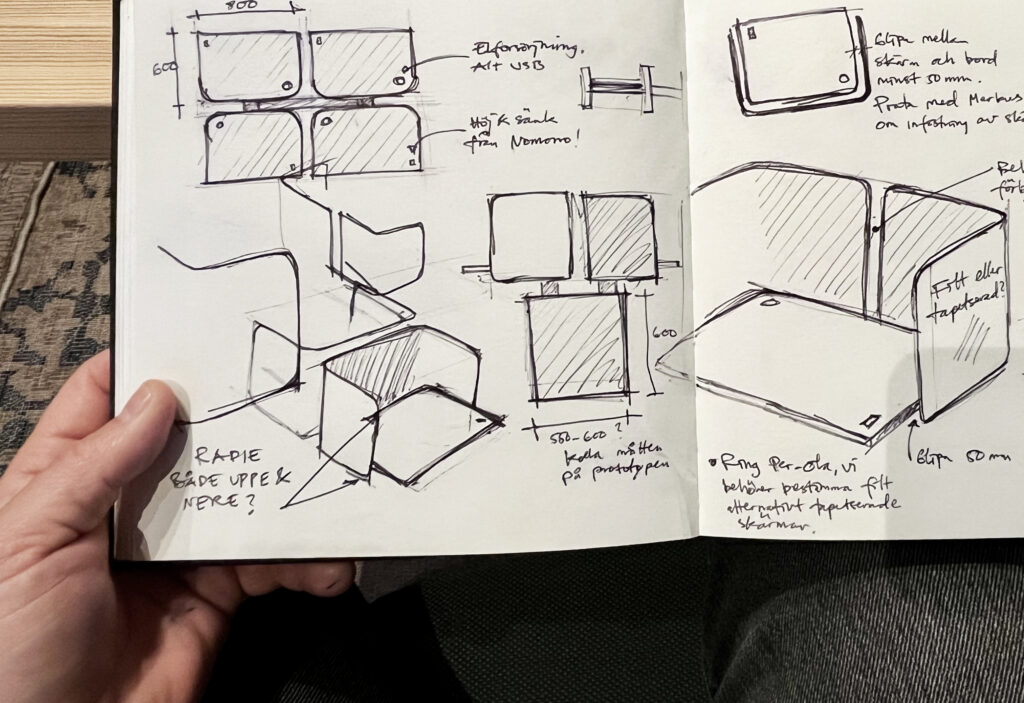
How do you view the balance between aesthetics and functionality in your work?
“Aesthetics and functionality go hand in hand. Of course, there are times when you can make aesthetic decisions that don’t affect functionality, but we don’t really think about it that way. The key priority with Nomono Compact was to create a workspace that, despite its minimal space, feels generous and convincing.”
You’ve had a long and successful collaboration with Horreds, designing several pieces, including Nomono, Glove, and Prime. How has this collaboration evolved over the years, and what makes working with Horreds special for you as a designer?
“Horreds is a very receptive, curious, and honest company. I’m sometimes struck by how they never compromise on quality just to save money. This allows me as a designer to create products I’m proud of and can fully stand behind.”
How do you think offices of the future will develop, and how can design play a role in shaping these spaces?
“I believe we will work more as ‘one’ rather than as individuals. It’s no longer ‘my’ desk but ‘our’ desk, ‘our’ work sofa, etc. Just by seeing these objects as communal, we’re on the right track. And we should approach tasks the same way—together, forward!”
Many of your products have become iconic. Is there something unique about Nomono Compact that you think could make it a future design classic?
“I imagine that in 20 years, Nomono Compact could be seen as an archetype for the shared open office, where collaboration is central. We’re in the midst of a shift from personal to communal workspaces, and I think Nomono Compact can serve as a model for that transformation.”
What inspires you in your daily work? Have your interests outside of design, like your passion for marathon running, influenced how you approach your projects?
“Inspiration comes to those who are open to it. In practice, this means being curious, curious, and curious. It’s about daring to ask wrong or silly questions and not falling into the same patterns as before…”
Learn more about Horreds’ German Design Award 2025 >
